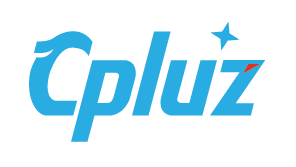In today’s digital world, having a website is no longer an option but a necessity for businesses and individuals alike. However, with the increasing number of websites comes an unfortunate reality – the threat of cyber attacks. Hackers are constantly seeking vulnerabilities to exploit, putting your website and its valuable data at risk. One crucial aspect of securing your website is by choosing a reliable and secure hosting provider. In this article, we’ll discuss how secure hosting can help protect your website from hackers.
Firstly, let’s understand what hosting is. Hosting refers to the physical server where your website’s files are stored and accessible via the internet. A good hosting company provides a robust infrastructure that not only ensures high uptime but also prioritizes security.
Here are some ways secure hosting can help protect your website from hackers:
1. Firewalls and Intrusion Detection System (IDS): A strong firewall acts as the first line of defense against unauthorized access to your website. It monitors and filters incoming traffic based on predetermined security rules. An IDS, on the other hand, continuously analyzes network traffic for signs of intrusion and alerts you when it detects any suspicious activity.
2. Regular Software Updates: Hackers often exploit vulnerabilities in outdated software to gain unauthorized access to websites. A secure hosting provider performs regular updates to ensure that your website runs on the latest, most secure versions of software. This helps prevent potential security breaches.
3. Secure Sockets Layer (SSL) Certificates: SSL certificates encrypt data transmitted between a user’s browser and your website, ensuring that sensitive information such as login credentials and financial transactions remain confidential. A secure hosting provider offers free or discounted SSL certificates to help protect your website and build trust with your users.
4. Backups and Disaster Recovery: Regular backups of your website are crucial in case of data loss due to a cyber attack or any other unforeseen circumstances. A good hosting company provides regular, automated backups and offers an easy-to-use disaster recovery process should you need to restore your site from an older version.
5. Two-Factor Authentication: This security feature adds an extra layer of protection by requiring users to provide two forms of identification before accessing their account or website. A secure hosting provider often offers this feature, which is essential in preventing unauthorized login attempts and securing your online presence.
6. Malware Scanning: Malware can infect your website and spread to other sites, potentially causing significant damage. Secure hosting providers offer regular malware scans and removal services to help protect your site from these threats.
7. DDoS Protection: A distributed denial-of-service (DDoS) attack floods your website with traffic, making it inaccessible to legitimate users. A secure hosting provider offers protection against DDoS attacks by absorbing the excess traffic and filtering out malicious requests, ensuring that your site remains accessible during a potential attack.
8. User Access Control: Providing limited access to specific areas of your website helps keep sensitive data safe. Secure hosting providers offer user access control features that allow you to set different levels of permissions for various users, ensuring that only authorized individuals can access certain parts of your site.
9. Compliance with Security Standards: Meeting industry-specific security standards such as HIPAA or PCI DSS is crucial for certain businesses handling sensitive data. A secure hosting provider helps ensure compliance by offering the necessary features and services required to meet these standards.
10. 24/7 Support: Lastly, a good hosting company offers round-the-clock support to help address any security concerns or incidents promptly. This peace of mind is essential in today’s fast-paced digital world where threats can emerge at any time.
In conclusion, secure hosting plays a pivotal role in protecting your website from hackers and cyber attacks. By choosing a reliable hosting provider that prioritizes security, you can rest assured that your online presence remains safe and accessible to your users. Incorporating these features into your hosting plan is an investment in the long-term success and safety of your website.

